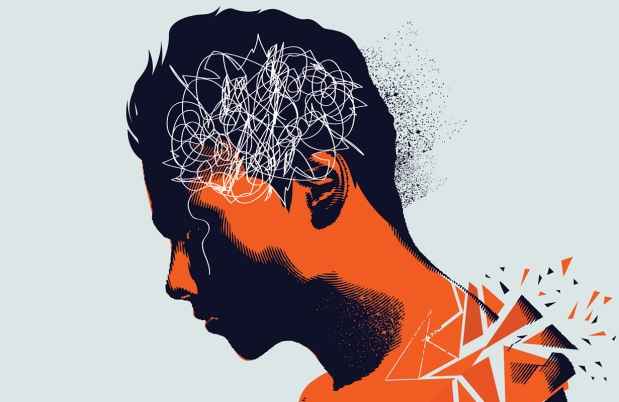Behavioral Health Partial Hospital Program
Our short-term, intensive day treatment program helps adults who are struggling with mental health challenges to stabilize mood and improve functioning. Contact us today to learn how our program can support you or a loved one.
The Behavioral Health Partial Hospital Program (BHP) offers short-term, intensive, day treatment for adults, ages 18 and up, with a wide range of psychiatric conditions, including mood and anxiety disorders, depression, personality disorders, bipolar spectrum disorders, and thought disorders.
Our highly structured program is ideal for people who are in crisis, but can still safely reside in the community. Many individuals attend the BHP after an inpatient psychiatric hospital stay or to prevent further worsening of symptoms that could require hospitalization.
The goal of the program is to stabilize mood, improve functioning, and support a return to outpatient treatment.
To help each patient, our expert team combines evidence-based treatment with person-centered care to create a customized treatment plan based on specific diagnoses, symptoms, and goals.
The approximate length of participation is two weeks (10 consecutive business days). The program operates Monday through Friday from 8:30am-3pm.
Treatment Approach
The BHP treatment model emphasizes group therapy and focuses on structure and skill-building.
Group therapy programming aligns with our core commitment to evidence-based care, and is informed by cutting-edge research conducted at McLean and around the world.
Our clinicians help patients build coping skills through the integration of cognitive behavior therapy (CBT), dialectical behavior therapy (DBT), and acceptance and commitment therapy (ACT).

The BHP also provides patient education groups that promote illness recognition and symptom management skills. Each day, patients receive an individualized group therapy schedule that is tailored to their specific treatment needs.
Examples of core skills groups include:
- Self-assessment skills
- Behavioral activation
- Cognitive restructuring
- Mindfulness, distress tolerance, emotion regulation, and interpersonal effectiveness
As part of a multidisciplinary treatment model, patients also receive medication consultation with a staff psychiatrist, case management and aftercare support, and individual therapy.
Our dedicated and experienced staff takes a comprehensive approach to treatment and recovery, incorporating loved ones in patient care as appropriate. To maintain treatment continuity, care is also coordinated with outpatient providers.
Research
The Behavioral Health Partial Hospital (BHP) Clinical Research Program, founded in 2009, conducts research to improve the understanding and treatment of psychiatric disorders. The BHP uses an integrative approach in which research informs clinical practice, and clinical practice informs research.
The program’s research focus includes predicting who will respond best to treatment, understanding why the treatment works, developing new and innovative interventions, and providing important insights regarding the structure of psychiatric diseases.
The BHP collects patient data via daily computerized self-report instruments and a one-time clinician-administered diagnostic interview. Together, this information is used to inform individualized case conceptualization and treatment planning.
Patients may also consent for their clinical data to be de-identified and analyzed for research purposes, and may participate in research studies involving computerized, fMRI, or EEG tasks.
Our treatment outcome evaluation research shows that patients attending the BHP experience a significant reduction in condition-related symptoms while seeing an improvement in their ability to function and their overall quality of life.
Patient participation in research is voluntary and does not affect access to care.
Admission
The BHP is best suited to adults with diagnoses of mood and anxiety disorders, depression, personality disorders, bipolar spectrum disorders, and thought disorders, and who are seeking short-term, intensive, group-based treatment.
The program is ideal for those who need more structure and intensive psychiatric intervention than is available in outpatient treatment, but who do not require 24-hour care.
Please note that we do not treat active symptoms of substance and alcohol addiction. The program is voluntary, and patients must agree to abstain from using alcohol and drugs for the duration of the program.
For information about our program, please contact Rebecca Jeans, MSW, LICSW, director of admissions:
Phone: 617.855.3460
Email: @email
Referral Form
Referrals must be made via the electronic referral form below and must be filled out by the patient’s clinical provider.
Patients should ask their provider to complete the form below. The form will then be reviewed by our staff, who will assess whether the BHP is an appropriate clinical fit for the patient.
Cost
McLean accepts Medicare, Massachusetts Medicaid and many private insurance and managed care plans.
More information on insurance providers accepted by McLean Hospital may be found on the Mass General Brigham website. You may also find it beneficial to review McLean’s patient billing and financial assistance information.
Treatment Team
Program Leadership

Rachel B. Weiss, PhD, Program Director
Dr. Weiss has expertise in proven treatments for mood, anxiety, and personality disorders. She also the general adult mental health track for the McLean Hospital/Harvard Medical School Doctoral Internship in Clinical Psychology. Dr. Weiss has published numerous peer-reviewed articles on the delivery and evaluation of evidence-based treatment in a partial hospital setting, and on the relationship between mood disorders and psychosocial stress.

Eliza Menninger, MD, Medical Director
Dr. Menninger treats patients with various diagnoses, including major depression, bipolar disorder, schizophrenia, and schizoaffective. An expert in psychotic disorders and mood disorders, she also sees patients in the Schizophrenia and Bipolar Disorder Outpatient Clinic. In addition, Dr. Menninger speaks at hospitals and at other institutions on her experiences with patients with bipolar and psychotic disorders.
Staff and Associates
A multidisciplinary staff of psychiatrists, individual program therapists, clinical team mangers, nurses, and mental health counselors are trained and experienced in a wide array of treatments, including cognitive behavior therapy (CBT), dialectical behavior therapy (DBT), motivational interviewing, contingency management, and medication evaluation and management.
Staff members have experience working with patients from diverse cultural and socioeconomic backgrounds.
Frequently Asked Questions
Where is the Behavioral Health Partial Hospital Program located?
The program is located on the Belmont campus, in the Recreation Building. For more information on directions, parking, and local accommodations, please visit our Maps & Directions page.
Who benefits most from the BHP?
BHP focuses on use of cognitive behavior therapy (CBT) approaches (including dialectical behavior therapy skills) to treat adults with a wide range of conditions such as depression, anxiety disorders, personality disorders, bipolar disorder, and psychotic disorders.
Is family involved in treatment?
With permission, family involvement, via contact with clinical social workers and family meetings, is encouraged when clinically appropriate.
Is smoking permitted?
Smoking is allowed in designated outdoor areas only. No smoking is allowed inside any of our buildings.
Are cell phones allowed?
Cell phones are permitted, but may not be used during group or individual therapy sessions.
Is aftercare planning a part of the program?
The treatment team works closely with the individual as well as with family, significant friends, and outside providers to develop a personalized aftercare plan. Recommendations by staff are made based upon clinical needs, progress made during treatment, and long-term treatment goals.
Can former patients access their medical records?
All requests for medical records should be directed to McLean’s Health Information Management Department.
Are support groups offered?
To complement our programs’ services and encourage individuals’ initiatives in their own treatment course, many self-help groups are hosted by McLean.
Does McLean gather patient feedback?
McLean is dedicated to maintaining high-quality and effective patient care. To ensure that those standards remain at the highest level, we utilize a number of feedback instruments and quality indicators.
Among these tools are the Perceptions of Care survey which monitors patient satisfaction and BASIS-24™, a psychiatric outcomes measurement tool created at McLean and widely used in the U.S. and around the world, which delivers feedback on the patient care experience.
We Are Here to Help
Call us today to learn more about treatment options at the Behavioral Health Partial Hospital Program.



